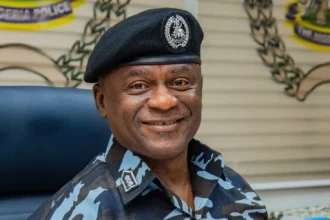The United Nations High Commissioner for Human Rights, Volker Turk, has strongly condemned the attack on a mosque in Kokorou village, western Niger, which left 44 worshippers dead and 20 others injured.
The attack, which happened on Friday, was carried out by armed men linked to the Islamic State in the Greater Sahara, an affiliate of ISIL. According to Niger’s defence ministry, the attackers surrounded Fambita Mosque during Friday prayers and opened fire on worshippers. They also set fire to a market and several homes.
Describing the attack as a “clear violation of international human rights and humanitarian law,” Turk said it was intended to cause maximum civilian casualties during the last 10 days of Ramadan.
“The egregious attack on the Fambita Mosque – during Friday prayers in the last 10 days of the Muslim holy month of Ramadan – was clearly intended to cause as many civilian casualties as possible,” he said.
He called for an impartial investigation to bring those responsible to justice.
The attack comes amid worsening insecurity in the Sahel region, where terrorist groups linked to al-Qaeda and ISIL have expanded their influence since 2012. The violence, which began in Mali, has spread to Niger, Burkina Faso, and even some coastal West African nations.
The UN Deputy Secretary-General, Amina Mohammed, has previously described the Sahel as “ground zero” for one of the most brutal security crises in the world.
Despite efforts by governments in the region, terrorism-related deaths have exceeded 6,000 for three consecutive years, accounting for more than half of global terrorism deaths.
Turk warned that the mosque attack should serve as a wake-up call to both Niger and the international community.
“The calculated assault on Fambita Mosque should be a wake-up call to all – including the international community – as to the seriousness of the situation and the widening risks faced by civilians in Niger,” he said.
The worsening security situation has also contributed to political instability. Between 2020 and 2023, military coups took place in Mali, Burkina Faso, and Niger, with all three countries still under military rule despite regional and international pressure to hold elections.
Turk urged the Nigerien authorities to take meaningful steps to protect civilians, uphold human rights, and involve affected communities in finding a lasting solution to the crisis.











